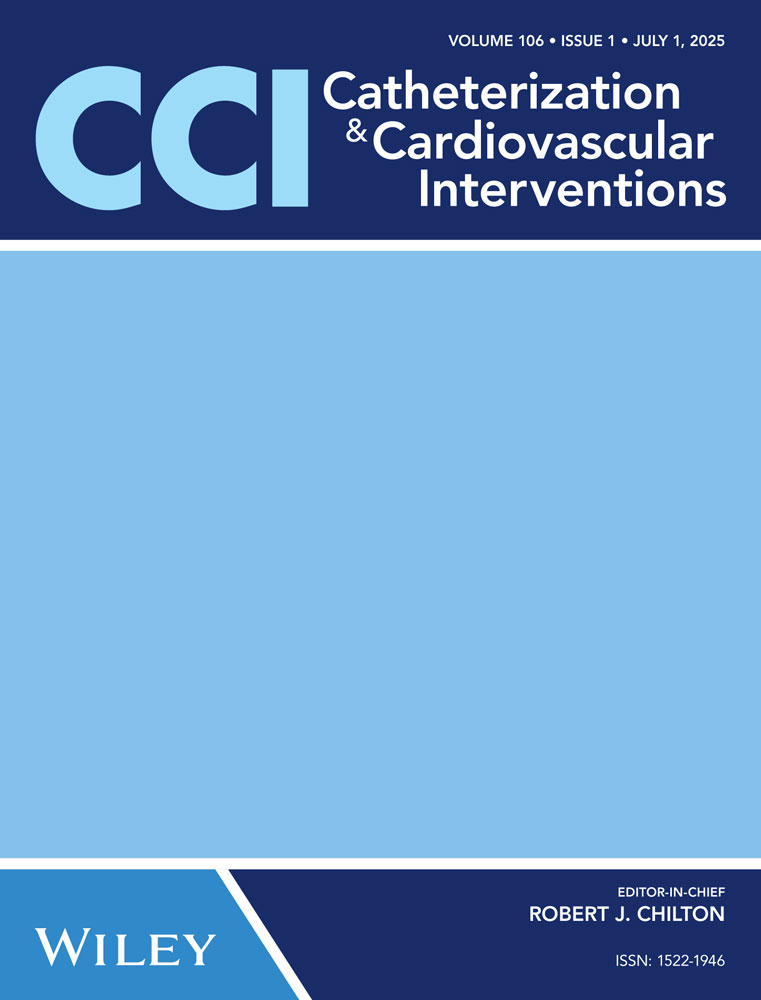Prognostic value of recurrent episodes of creatine kinase-MB elevation following repeated catheter-based coronary interventions
Abstract
Creatine kinase-MB (CK-MB) enzyme elevations were shown to affect cardiac prognosis following percutaneous coronary interventions (PCIs). This study examined whether recurrent episodes of CK-MB elevation following repeated PCIs may be associated with a cumulative adverse prognostic risk. We studied 767 consecutive patients (age, 64 ± 11 years; 69% male) who underwent two consecutive PCI procedures on two separate hospitalizations (mean interval, 121 ± 110 days). Patients were stratified into four groups according to number of episodes of any (> 4 ng/ml) postinterventional CK-MB rise (no elevation, previously elevated, currently elevated, or elevated at the time of both procedures; n = 403, 107, 153, and 104 patients, respectively). In-hospital clinical outcomes (death, Q-MI, and repeat revascularization) and up to 1-year follow-up events were obtained. Recurrent episodes of CK-MB elevation were associated with increased in-hospital mortality (3.8% vs. 0.9% vs. 0% vs. 0%, P = 0.0003), increased cumulative mortality (18.9% vs. 5.9% vs. 4.3% vs. 4.3%, P = 0.0003) and cumulative Q wave MI (8.0% vs. 4.9% vs. 1.0% vs. 0.8%, P = 0.005) at 1 year, and lower overall cardiac event-free survival at follow-up (66.8% vs. 80.5% vs. 88.8% vs. 88.8%, P = 0.0001 for patients with twice, current, previous, and no CK-MB elevation, respectively). By multivariate analysis, CK-MB elevated at the time of both procedures, was the strongest independent predictor for cumulative mortality (OR 3.4, 95% CI 1.6–7.1, P = 0.001) or any adverse cardiac events (OR 2.6, 95% CI 1.6–4.3, P = 0.0002). We conclude that cumulative episodes of periprocedural CK-MB elevation are associated with an incremental adverse prognostic risk including mortality and Q-wave MI. Thus, measures aimed at reducing subsequent CK-MB rise may be warranted in particular among patients with a prior history of PCI related CK-MB elevation. Cathet. Cardiovasc. Intervent. 51:131–137, 2000. © 2000 Wiley-Liss, Inc.




